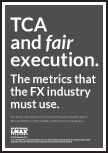I’ve been listening to Weed the People
, an episode from late last year on Latino USA about the development of legally licensed marijuana markets — mainly with reference to California — and the way it interacts with local entrepreneurs, booming but hindered state and national markets, and the shadow of the racialized war on drugs for black and Latino weed dealers who bore the brunt of the war on drugs.
Shared Article from NPR.org
Throughout his decades of selling weed, Ramón García never thought he’d see the day marijuana became legal in California. But while he now owns a le…
npr.org
Proviso: the NPR story admits that, as far as their reporters were able to determine, there isn’t much hard data
to prove racial disparities in access to or profits in legalized weed markets. I wish there were some effort to gather the hard data; until there is some, take this as the usual anecdotal reporting — it seems like there might be a racial disparity here; here are, definitely, some anecdotes of black and Latino weed dealers who have had to put up with a lot more crap in their lives than they ever should have had to put up with, and who now face a lot of obstacles that don’t serve any obviously beneficial purpose in the effort to go legit.
(Even if there isn’t a systematic racial disparity when you tally everything up, there are lots of individual cases of injustice; if there is a systematic racial disparity, so much the worse, and if so that would tells us something about how policing and legalization work in American society.)
Obviously, no matter what ends up happening here, it’s hard to deny that the situation now — whatever its flaws — is not as bad as the situation that proceeded liberalization; obviously, nobody should want a halt to the process or a return to Drug War policing. But there’s also a sort of Against Legalization point that needs to be made here — about the effects that unsurprisingly, naturally occur when liberalization is only allowed to happen when and where it can be refracted through an elaborate, expensive, in some ways highly conservative regulatory regime for permitting and controlling the sale of weed to willing customers — something which, need we recall, is really just fine, and does not actually need to be controlled by the state, and should never have been treated as a crime in the first place.
The city government in Oakland has approached the issue by trying to manipulate the issuing of permits — by implementing a priority queue that’s explicitly intended to benefit racial minorities, and operationally designed in favor granting licenses more quickly to people who had been arrested for drug crimes and people from neighborhoods where a lot of other people were arrested for drug crimes. But what if the permits themselves — and the drive to maintain social and economic control behind those permits — are part of the problem?
There are really a couple of different angles from which you might look at this story. (a) A social justice-oriented Leftist is probably going to see this story mainly from the angle of racial justice.[1] People like Ramón Garcia are struggling to make their way into above-ground cannabis market, whereas white-owned dispensaries and well-financed businesses[2] are moving in much more easily. If you want to know why, a lot of the reason has to do with the white privilege, with the history of racist motives behind Nixon’s or Reagan’s War on Drugs and mass incarceration policies, and with the long shadow of racist overpolicing and imprisonment in communities of color — black and Latino folks like Ramón Garcia have faced decades of racist drug policies,
generations of criminalization, violence, police harassment, etc.; they are disproportionately likely to bear criminal records and to bear economic costs that make it harder to go into business, harder to meet the permitting requirements, etc. You’re going to look at the fears that caused regulations on legalized weed and dispensary licensing to be written in the narrow, restrictive way that they have been written; on the disparate legacies of drug policies in different communities; and on the micro-scale effects of police and prison, as well as the macro-scale structural factors, which conspire to make it hard to access funding or do the other things that you would need to do to start or expand any kind of business.
(b) A market freedom-oriented libertarian is probably going to look at the same story and see it mainly from the angle of overregulation and barriers to entry. Weed could have been legalized by just getting the government out of the business of policing and controlling weed sales. Prohibition could have been replaced by freedom and governmental indifference. But instead, prohibition was replaced by regulation and permitting. Part of the reason for this is for the government to make sure it can extract sin tax revenues from weed sales. Part of the reason is a busy-bodying regulatory state trying to control how the legal weed market shaped up. So if you want to know why well-funded, big businesses are moving into this market so rapidly, while smaller-scale entrepreneurs like Ramón Garcia are struggling to make their way into the above-ground cannabis market — even though many of them, like Garcia, have extensive pre-existing acumen, resources and business connections from their years as underground weed dealers — then you’d look to the punitive legal legacy of drug prohibition, and to the extent and invasiveness of the regulations that now screen who can enter the formal industry and who can’t. Ramón was arrested 20 years ago because of an over-aggressive police search and a bullshit gun control charge, and he had to keep his business in the shadows for years because he didn’t have the capital to meet the state’s marijuana regulations until only a couple of years ago. The state and city governments limit the number of permits that can be given out. Keeping your permit requires dealing with a lot of complex and expensive regulations — many of them about some really chickenshit requirements.[3] The state legalizes cannabis only so long as you get in the queue for a tightly limited number of permits, pay inspection fees and taxes, pay out for a storefront location and insurance, and lay out tens or hundreds of thousands of dollars at a go because you’ve just been informed that you have to make sure your weed van is street-legal, up to a standard set by some state policy. It’s not too surprising that this hurts bottom-up entrepreneurship and helps people who are ensconced within existing formal business worlds and who have access to extensive funding. Regulation and licensing mean overwhelming complexity barriers to entry, tight rationing barriers to entry, and huge financial barriers to entry. That helps the well-resourced and formal businesses, and it hurts the poor, marginalized, and informal-sector entrepreneurs.[4]
In either case, it’s hard to deny that a whole lot of black and Latino people have been victimized by the racial politics and the police violence of the drug war. The state owes them reparations for the years of damage that it has done. And the way they’ve tried to go about legalization risks excluding many of them from a market where — despite the risks and the costs and the violence unjustly inflicted on them under Prohibition — they had at least made something of a living up to now. But the best thing to do is not to try to tweak the licensing scheme to favor a different class of legal weed dealer; it’s to get rid of the restrictions and licensing entirely — to let as many people as possible enter the legal weed market, with a minimum of interference or monitoring by police, city governments and state regulators.
See also.
- GT 2010-01-27: The State of the Debate #2: Against legalization
- GT 2010-02-04: Against legalization (cont’d)
- [1]You could also see it from the standpoint of socioeconomic class, but in America these are going to be all tangled up together, and most of the time a social justice ideology is going to go more quickly to race than to class as a default way of understanding problems of power and criminalization in American history.↩
- [2]Some of these are incumbents from the Medical Marijuana market; others are new green-rush startup businesses.↩
- [3]For example: Check the segment beginning at 16:06, at a
trade show for the legal weed business in Oakland.
The city government in Oakland is sponsoring a trade conference to try to help POC weed entrepreneurs show off their wares and meet up with investors; but meanwhileRamón’s business is stalled. He hasn’t been able to distribute any weed recently, because the state started enforcing a rule that requires compliant distribution vehicles. Or in other words, Ramón needs a new van — with specs the state approves — before he can distribute any more weed. He was supposed to have the van already but it took a while to raise the money.
↩Man, all the paperwork is signed. We were supposed to get it delivered yesterday; now they’re telling us early next week, man… It’s the issues of doing business, right? …
- [4]The typical thing to say here from a libertarian standpoint would be that it helps incumbents and hurts startups — and to point to the problem of regulatory capture — but that needs to be taken with a certain amount of nuance, since erstwhile illegal drug dealers are incumbents in the weed market; while many green-rush investors are newcomers. It would be better to say that licensing and regulation help incumbents within the formal business world, and hurt people who are trying to break into that world, even if it’s in a line of business they’ve been practicing for years in the informal or illegal sector.↩





